Internet Project
Net Neutrality
Net Neutrality is the term made for the idea that internet service providers should allow all content to flow
equally. This gives into the idea that some data shouldn't be more accessible through speed, blocking, or discriminations against
other data. For example, companies shouldn't be able to slow down streaming services like Netflix because they want you to use Disney+
instead.
Without net neutrality, it is possible for internet providers to prioritize certain sites and services. Putting them in a "fast lane" can let
the internet providers allow you to see what they want you to, ranging from information to purchases. Companies may be able to pay for this
"boost" allowing them to have a possible monopoly over their specific service.
With companies favoring certian services and sites, you may have to pay more to access the sites you want to use.
The blocking done by internet providers can also hinder growth and innovation. Companies or people who want to grow and spread their idea
may not be able to because they cannot afford to pay internet providers to get them out of "slower lanes". Sites like Netflix or YouTube may not
be avalible to us if it wasn't for net neutrality.
Sources:
The WIRED Guide to Net Neutrality
Why You Should Care About Net Neutrality
Net Neutrality
What is Net Neutrality and how can it Affect you? - BBC News
from YouTube
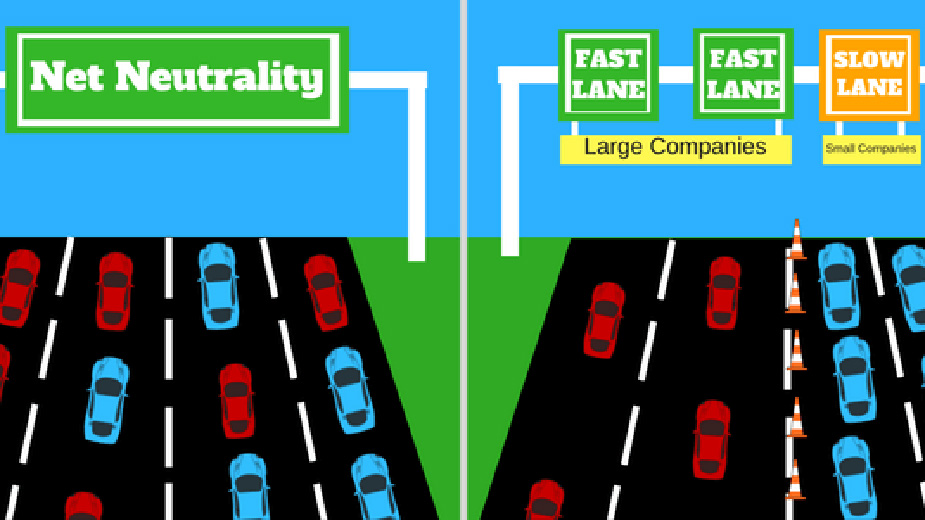
from Business Journal Daily
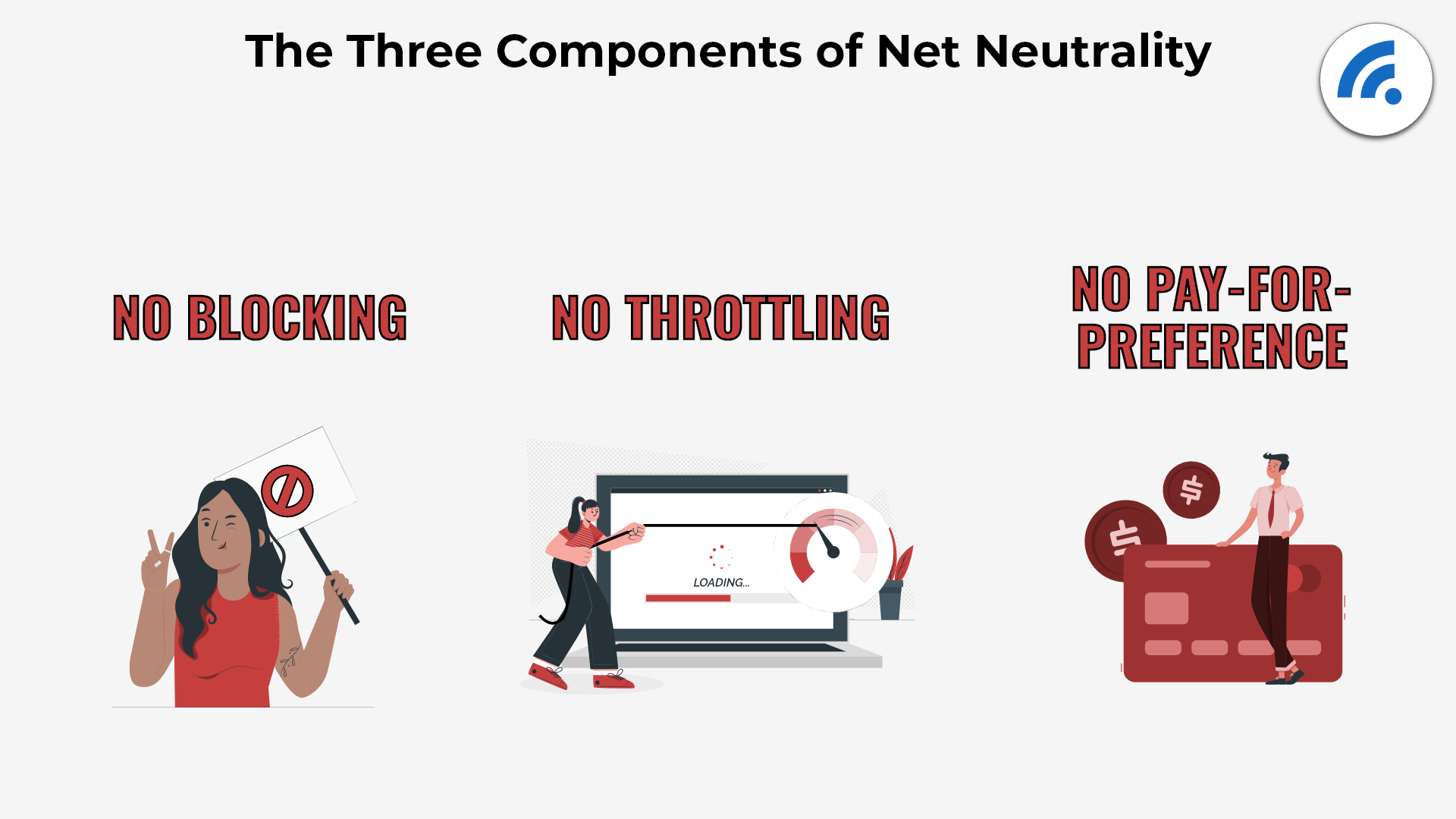
from BroadBandSearch
Internet Censorship
Internet censorship restricts certain topics and/or news to be seen on the internet.
Governments can block what can be put on the internet. There can be internet censorship in
places smaller than governments, including schools, work, and home - if it is decided that
there should be.
Internet censorship blocks things that may be inappropriate or opposing values. Countries may
block foreign websites or the spread of news that may be against the values of the country.
The censorship can also be a type of propaganda by allowing the users to only access information
that may favor their goals.
Internet censorship can be done by filtering and blocking certain keywords or IP addresses.
Port number blocking and traffic shaping can restrain entire applications from being used
through blocking or throttling. VPNs, secure browsers, and proxy servers can aid in bypassing
internet censorship.
Sources:
The Future of Internet Freedom
What is Internet Censorship?
Internet Censorship in 2022: The Impact of Internet Restrictions
Internet Censorship - Computerphile
from YouTube
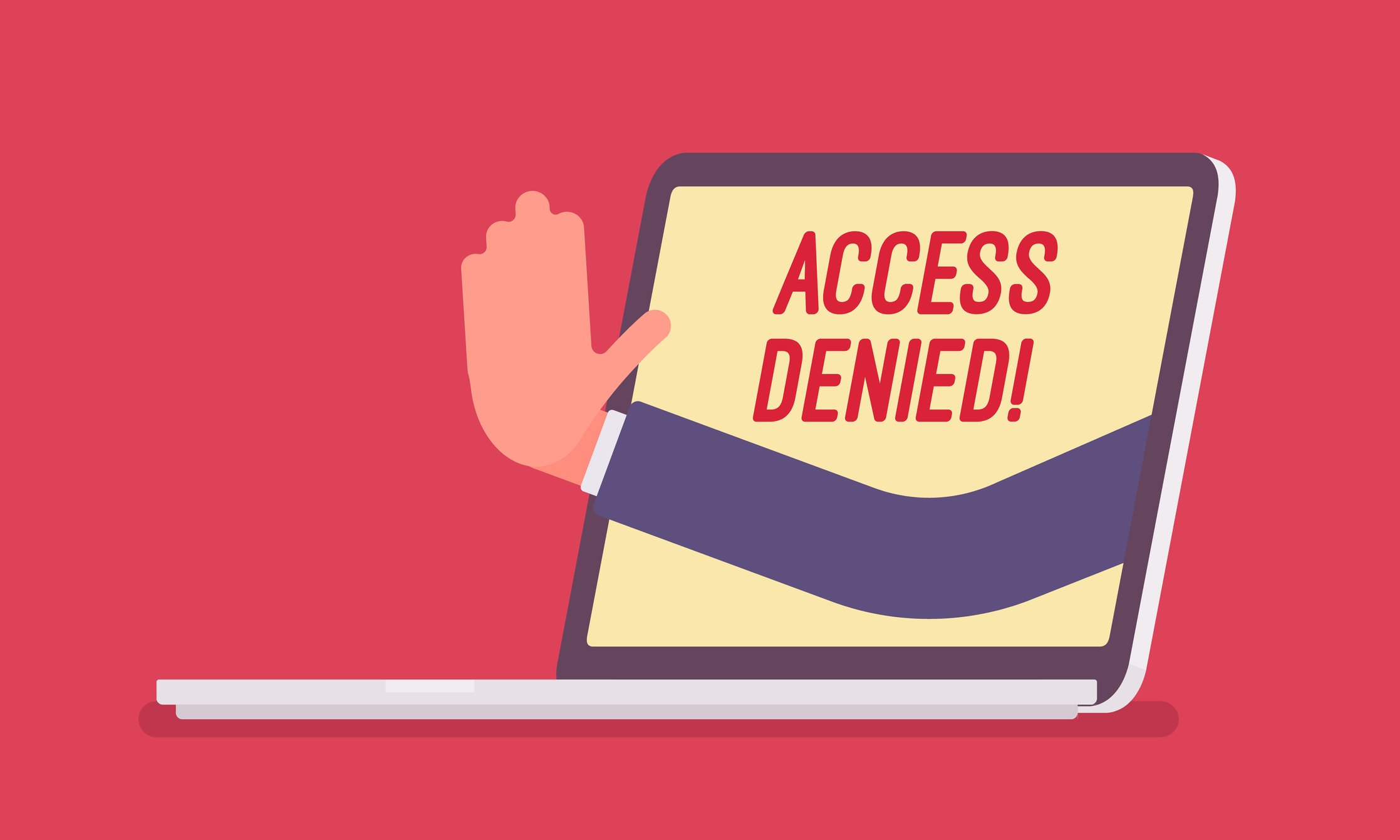
from G2
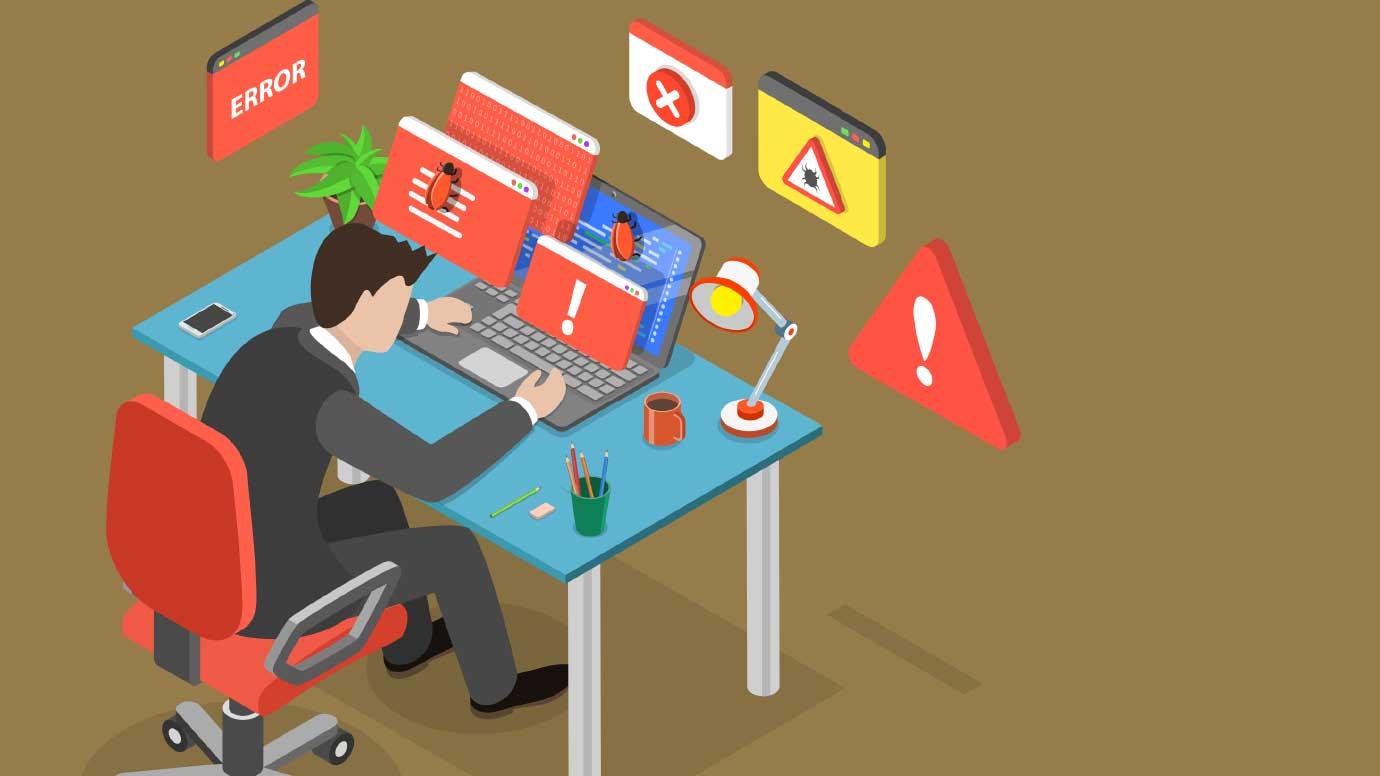
from University of Chicago News
Digital Divide
The digital divide describes the gap between people and their access to information through the internet.
People who cannot afford devices or plans, are stuck in rural areas, and don’t know how to use the internet are
people who are hindered by this growing gap. Younger people who are living in more urban areas and have money are
able to access the internet and digital perks more easily.
People without access to digital media can be lagging behind on news and information that would otherwise benefit them.
Education, race, and income play a part in having digital access as well. In times such as the COVID-19 pandemic, many
students were left with no access to their education because they did not have access to the internet or their own devices.
In order to shrink the digital divide, changing the idea that technology is an additional luxury to something that is now a
necessity needs to happen. Having community access can allow people who don’t have the means to have their own devices to be
able to be on the internet. Increasing digital proficiency for people of all ages can be beneficial as well. Shrinking the
digital divide can also shrink the divide among people and their possibilities of doing in the future with the new access to
information, education, and people.
Sources:
The Digital Divide
How to Close the Digital Divide in the U.S.
Digital Divide: The Technology Gap between the Rich and Poor
The Digital Divide, Explained - Freethink
from YouTube
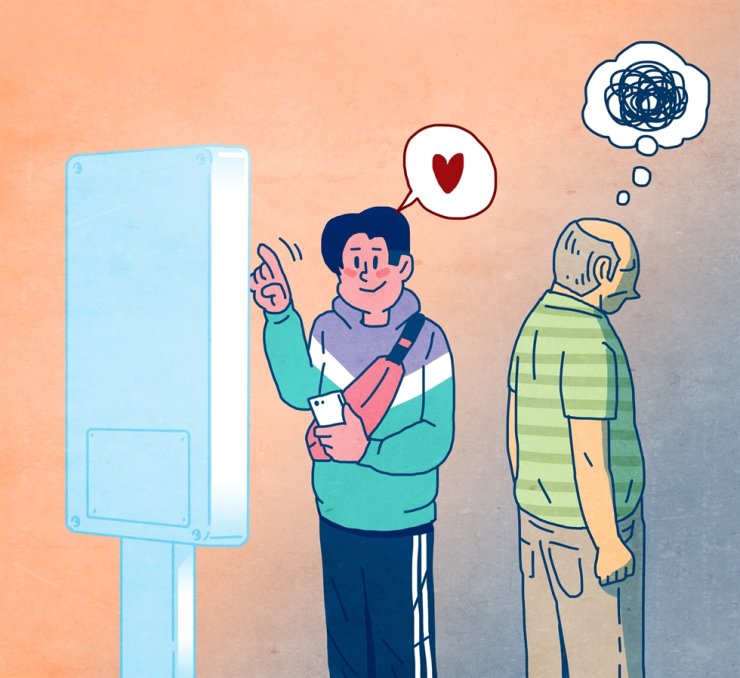
from The Korea Times
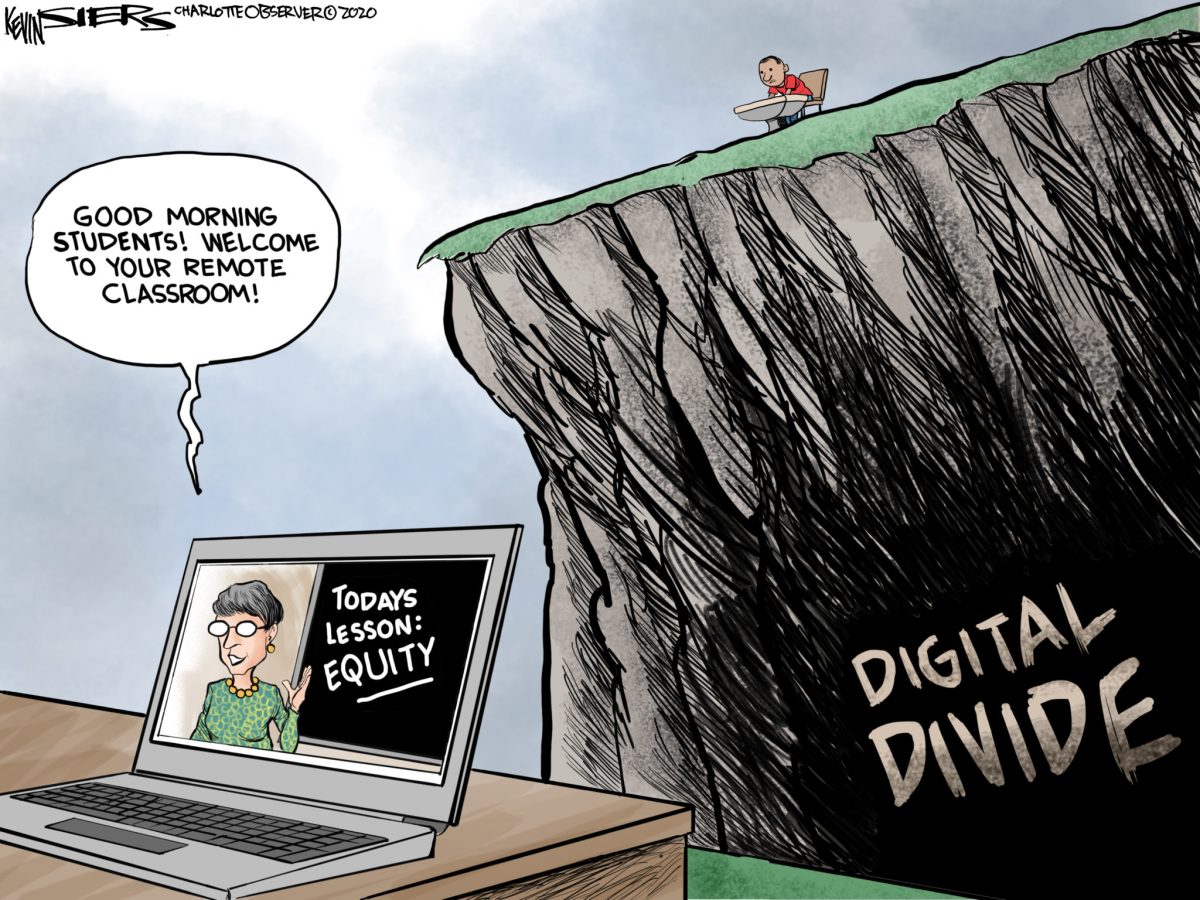
made by Kevin Siers